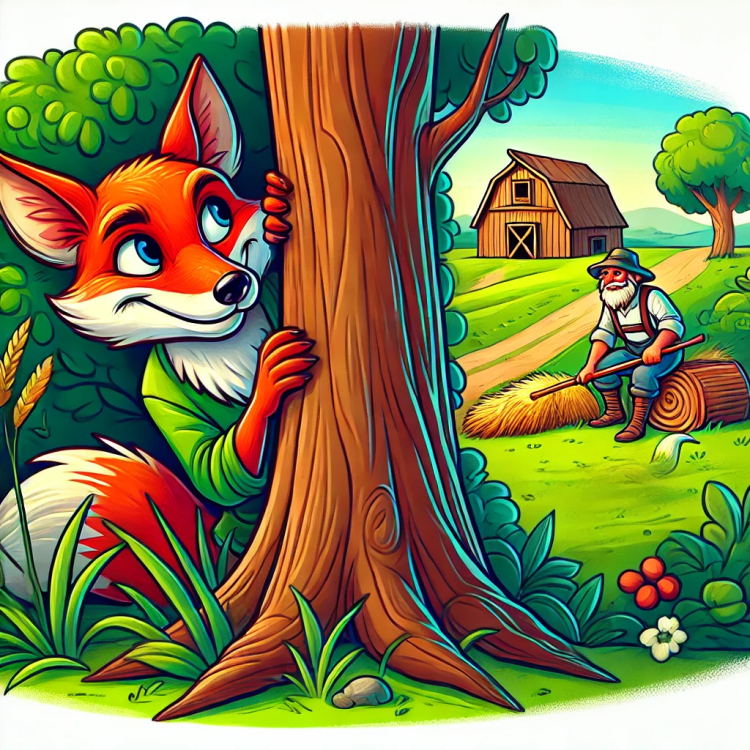The Fox and the Villager: A Japanese Tale of Magic and Wisdom
The Fox and the Villager is a Japanese fairy tale about a magical fox who tried to deceive a farmer but fell into his own trap. A story about shrewdness, wisdom, and the consequences of deceit.

Brief Description: This is a Japanese fairy tale about a magical fox that could transform into a human. It attempted to deceive a farmer, but the man's shrewdness and wisdom helped uncover the deceit. This story teaches that intelligence always triumphs over cunning.
Long ago, in a Japanese village, there lived a farmer named Taro. He was known for his kindness, but also for his shrewdness and caution. Nearby the village dwelt a magical fox, renowned for its ability to transform into a human to deceive people and steal food.
One day, the fox saw Taro returning from the fields with a sack of fresh rice. The fox was hungry and decided to deceive the farmer. It used its magic and transformed into an old, poor wanderer. Its clothing was torn, and its gait was slow and weary. It blocked Taro's path and, pretending to barely stand, said:
— Good man, please help a poor old man. I am hungry and have not eaten for a long time. Could I have some of your rice?
Taro looked at the "old man" attentively and noticed something strange. The "old man's" eyes sparkled like those of an animal, and his hands were unnaturally thin, almost like paws. But the farmer did not show that he had noticed this. Instead, he said:
— Of course, dear sir. Come with me to my home, I will provide you with hot food.
The fox agreed, convinced that it could steal all the rice once it reached home. Along the way, Taro deliberately told stories about fox pranks that deceived people to observe the "old man's" reaction. When he arrived home, his suspicions were confirmed: the "old man" nervously glanced around as if preparing to steal something.
In Taro's house, he decided to test his suspicion. He brought a plate of steaming rice but sprinkled some hot coals on top, covering them with a thin layer of rice. Placing the plate in front of the "guest," he said:
— Please eat, dear sir, you must be very hungry.
The fox couldn't wait any longer. It grabbed the food without thinking that it might be hot and burned its paws, which peeked out from beneath its human disguise. The fox screamed and immediately shed its magical transformation, revealing its true form.
— Ah, you sly one! — exclaimed Taro. — You thought you could deceive me, but you are caught!
The fox, realizing it had been uncovered, fell to its knees and began to plead:
— Forgive me, good man. I will never steal from people again. Please let me go!
Taro took pity on him and let him go but sternly punished him:
— Remember, cunning can help you once, but if you use it for evil, it will turn against you.
From that day on, the fox never tried to deceive people again, and Taro became known in the village as the wisest farmer who managed to outsmart the most cunning creature.

Moral of the Story:
This story teaches that even the craftiest trick can be exposed when faced with wisdom and shrewdness. Honesty is always stronger than deceit.
Discussion Questions:
- How did the farmer realize that the "old man" was a fox?
- Why did the fox burn its paws on the hot coals despite its transformation?
- What does this story teach about the consequences of cunning and deceit?
What's Your Reaction?




















